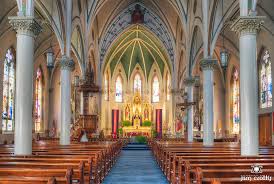Crux of the Matter 7
Topic: Holy Days of Obligation: To Worship is a Sign of Human Freedom
By Fr. Wade Menezes, CPM
The Fathers of Mercy
Sundays and Holy Days of Obligation require of the Catholic Christian obligatory Mass attendance. Why? Precisely because we love God; not because we fear Him.
The Second Vatican Council teaches that “the Sacred Liturgy is above all things the worship of the Divine Majesty” (SC, 33). God calls us to Himself, and we want to respond – with sacred and divine worship. Apart from illness, for example, the Church teaches that the faithful are obliged to participate in the celebration of the Sacred Liturgy on all Sundays and Holy Days of obligation. This is a grave obligation, and to willfully neglect it can cause one to commit mortal sin.
In fact, every Sunday is a Holy Day of obligation. The Code of Canon Law (1246) states clearly that, “Sunday, on which by Apostolic tradition the Paschal Mystery is celebrated, is to be observed in the universal Church as the primary Holy Day of obligation.”
Other examples of Holy Days of obligation (apart from Sunday itself) include the Solemnity of Mary, Mother of God on January 1st; the Assumption of Mary on August 15th; and the Immaculate Conception of the Blessed Virgin on December 8th. While there are other Holy Days of obligation established throughout the world (such as the Ascension of Our Lord and the Solemnity of Corpus Christi), national bishops’ conferences can dispense the faithful from the obligation for a just reason and even transfer a Holy Day to be observed on a Sunday.
As faithful sons and daughters of the Church, let us remember, too, that faithfully attending Mass on Sundays and Holy Days of obligation brings with it not only an observance of the Third Commandment, but also a faithful adherence to a formal precept of the Church. Also, to worship God is a sign of human freedom. When Moses sought release of the Israelites from their slavery under Egyptian rule, it was precisely to go and worship, something they could not do under Egyptian rule. Thus, to worship God is a sign of human freedom. To not worship God is a sign of human slavery. Be free. Worship Almighty God.
